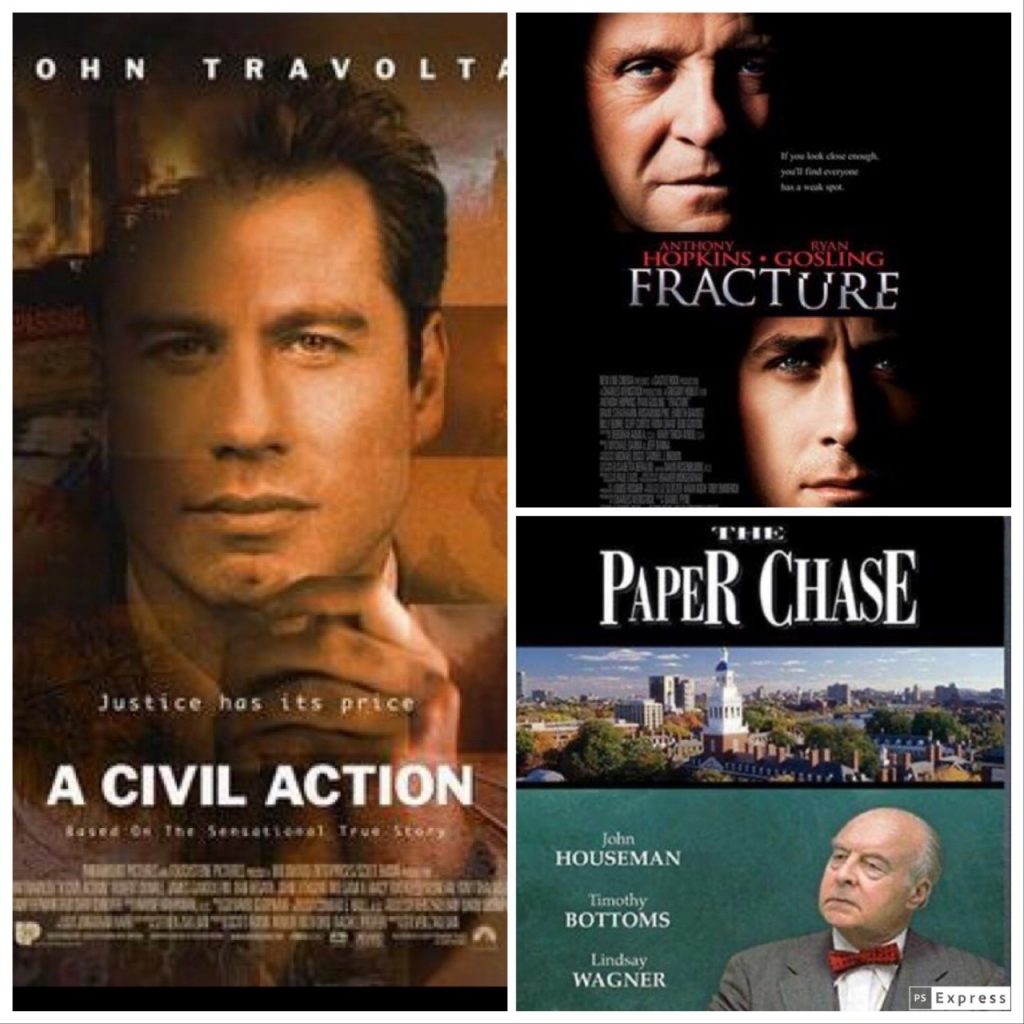Since beginning law school, several of my professors have referenced or played clips of movies in class that somehow related to the material we were discussing. Law school isn’t always about getting cold-called!
In Contracts, Professor Platt played a clip from The Paper Chase when we talked about the famous “hairy hand” case. Professor Mulligan used A Civil Action to reference important rules in Civil Procedure we were learning. (It’s also an award-winning book. Though, I admit I haven’t found the time to read it yet). And on the first day of Evidence this summer, Professor Leben showed a clip from Fracture where a chilling Anthony Hopkins, accused of shooting his wife, says, “If I can’t introduce something in court as evidence … it doesn’t exist legally.”
Since I had never seen any of these movies, I decided to use my study breaks this weekend to watch them. Here are some of my thoughts. Caution: spoilers ahead.
First, The Paper Chase begins with the main character, Hart, being unprepared to answer a cold call on the first day of Contracts at Harvard Law. He admits he didn’t know he had an assignment, and the stern professor expresses his disappointment. Hart is so upset about this interaction he gets sick after class. Not a great way to start law school.
Although cold-calling is a common occurrence in my classes, the professors at KU Law are not as intimidating as Hart’s. Instead, the professors at KU want everyone to learn and succeed and are always available to answer questions. Also, unlike the professor in the movie, the professors at KU try to get to know their students.
My favorite scene came at the very end, when Hart received his grades in the mail (yes, in snail mail — it was 1973). Instead of opening them, he makes a paper airplane out of the envelope and sends it into the ocean. I liked this message because it can be easy to get sucked into believing your performance in law school defines you. But it doesn’t. Everyone here is so much more than their grades.
In A Civil Action, John Travolta plays a hotshot personal injury lawyer who takes a case against a few large companies responsible for contaminating the water supply in a small Massachusetts town. Initially excited about the prospect of garnering a big paycheck out of a future settlement agreement, his motives change when he gets to know the families who have been affected by the contamination.
At the end of the film, Travolta and his associates go their separate ways as he now realizes his motivations for being a lawyer no longer revolve around monetary gain. A Civil Action offers a lesson to prospective lawyers to always take time to reflect on their motivations.
You might want to become a lawyer to make a lot of money, and that’s OK. You might also become a lawyer because you want to work for those who cannot reimburse you, and that’s also OK. But taking time to understand your motivations might help guide you into different areas of law.
Finally, in Fracture, a young prosecutor (Ryan Gosling) goes toe-to-toe with a wealthy businessman (Anthony Hopkins) arrested for attempting to murder his wife. What seems to initially be a foolproof conviction quickly turns sour as it becomes apparent that Hopkins has ingeniously plotted this murder to avoid being found guilty. Just when it seems that Hopkins has won, Gosling finds a new way to get Hopkins.
What is there to take away from this movie? Don’t mess with lawyers. They know the law better than you.
-By Helen Phillips, a 2L from Overland Park and a KU Law Student Ambassador

